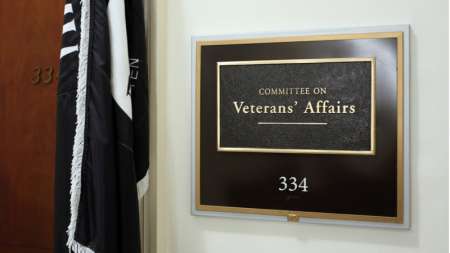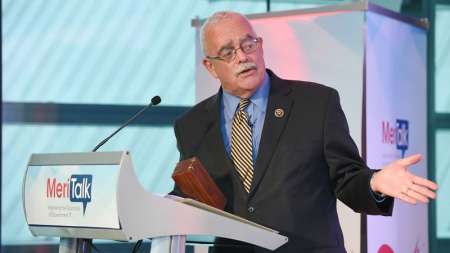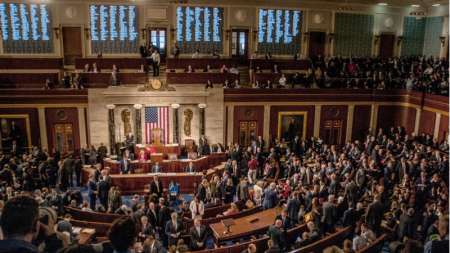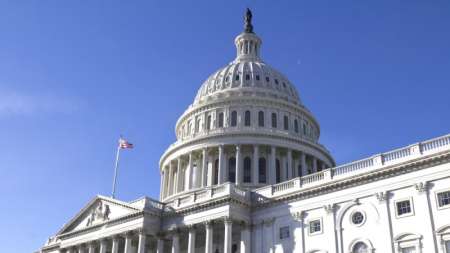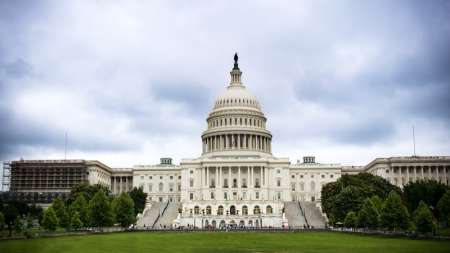The House Science, Space, and Technology Committee approved two bills on Feb. 12 to harden the U.S. electric grid against cyberattacks. […]
Reps. Ro Khanna, D-Calif., and Mark Meadows, R-N.C., introduced legislation Feb. 13 to codify the General Services Administration (GSA) Technology Transformation Services (TTS) Centers of Excellence (CoE) program. […]
During today’s Senate Homeland Security Committee Hearing, both Committee Chairman Ron Johnson, R-Wis., and Cybersecurity and Infrastructure Security Agency (CISA) Director Chris Krebs agreed that CISA’s role is largely similar to the Federal Emergency Management Agency’s mandate. […]
The FedRAMP Authorization Act, sponsored by Rep. Gerry Connolly, D-Va., passed unanimously in the House by voice vote on Feb. 5. […]
The Congressional Budget Office (CBO) said in a Jan. 31 estimate that the Harvesting American Cybersecurity Knowledge through Education (HACKED) Act of 2019 would cost $57 million to implement over the next five years. […]
Members of Congress have a lot on their plates, and on any given day understanding the nuances of technology issues may not be one of them. […]
Reps. Peter DeFazio, D-Ore., Frank Pallone, D-N.J., and Richard Neal, D-Mass., released a five-year infrastructure investment framework Jan. 29 with $98 billion dedicated to broadband initiatives. […]
Bipartisan legislation introduced in the House Jan. 24 would require the Small Business Administration (SBA) to establish a free cybersecurity marketplace for small businesses to purchase services from security vendors. […]
The House on Jan. 28 approved by a vote of 385-8 the Supporting Veterans in STEM Careers Act. The bill was passed by the Senate in December 2019, and it’s next stop is the desk of President Trump. […]
Members of Congress and officials from the Department of Veterans Affairs (VA) discussed the value of data-driven suicide prevention strategies at a Jan. 29 House Committee on Veterans’ Affairs hearing led by committee Chairman Rep. Mark Takano, D-Calif. […]
Rep. Gerry Connolly, D-Va., and Sen. Brian Schatz, D-Hawaii, introduced a bill Jan. 28 to give Federal employees a 3.5 percent pay raise in 2021. […]
Sen. Richard Burr, R-N.C., chairman of the Senate Intelligence Committee, said Jan. 22 that the Federal government’s backlog of security clearance has fallen to near 200,000, from its peak of 725,000 backlog applications in 2018. […]
Sen. Mark Warner, D-Va., urged Drug Enforcement Administration (DEA) Acting Administrator Uttam Dhillon in a Jan. 17 letter to release a “long-delayed rule” that will “ensure providers can successfully use telehealth to treat individuals with substance use disorders.” […]
Sens. Maggie Hassan, D-N.H., John Cornyn, R-Texas, Rob Portman, R-Ohio, and Gary Peters, D-Mich., introduced legislation on Jan. 16 that directs the Department of Homeland Security (DHS) to establish a Cybersecurity State Coordinator program. […]
A bipartisan group of House members introduced legislation on Jan. 16 that would use broadband service data mapping to identify areas of the country where high rates of poor maternal health overlap with a lack of broadband service access. […]
A bill introduced in the Senate this week aims to steer tens of billions of new funding toward civilian Federal government research and development efforts involving “industries of the future” including artificial intelligence (AI) and quantum information science (QIS). […]
The House Committee on Financial Services passed H.R. 4458, The Cybersecurity and Financial System Resilience Act of 2019, via voice vote on Jan. 13. […]
Reps. Tim Walberg, R-Mich., and Bobby Rush, D-Ill., introduced the Preventing Real Online Threats Endangering Children Today (PROTECT) Kids Act on Jan. 9. […]
House lawmakers on Jan. 8 passed two telecommunication bills promoting United States leadership in 5G infrastructure and systems. […]
Sen. Tom Cotton, R-Ark., introduced a bill on Jan. 9 that would ban the United States from sharing intelligence with countries that use Huawei equipment and services for 5G network capabilities. […]
The House late on Jan. 8 approved H.R. 2881, a bill requiring President Trump to develop a mobile telecommunications systems and infrastructure strategy, by a 413-3 vote. […]
President Trump signed the Telephone Robocall Abuse Criminal Enforcement and Deterrence (TRACED) Act into law on Dec. 31, 2019. […]
The Department of Energy has taken the steps necessary to implement the 2015 Cybersecurity Information Sharing Act, the department’s inspector general (IG) said. […]
The California Consumer Privacy Act (CCPA) that took effect earlier this week will not only erect a higher data privacy bar for citizens of the state, but also may put an important policy stake in the ground for Federal lawmakers who are weighing nationwide data privacy legislation. […]
Throughout 2019, members of Congress introduced numerous IT-related bills to their chamber, but they are scattered across various levels of the legislation process. With the 116th Congress approximately halfway through its two-year session, here’s a status update on where some of the top IT legislation stands: […]
Sens. Gary Peters, D-Mich., and Rick Scott, R-Fla., have introduced a bill in the Senate that would establish a K-12 cybersecurity education initiative. […]
The recent approval by the House of Representatives of two bills to improve the Federal government’s efforts to assemble and maintain accurate nationwide broadband service maps is adding weight to an ongoing push by the Federal Communications Commission to do the same in order to direct funding and other regulatory help to bringing more broadband options to underserved areas. […]
The House Science, Space, and Technology Subcommittee on Energy on Dec. 19 passed the Grid Modernization Research and Development Act of 2019. […]
The House Energy and Commerce Committee (E&C) released an initial draft of a bipartisan Federal privacy bill on Dec. 18. […]
A bill backed by members of the Senate Homeland Security and Governmental Affairs Committee would give the Cybersecurity and Infrastructure Security Agency (CISA) the power to issue administrative subpoenas to internet service providers (ISPs) in order to identify vulnerabilities in critical infrastructure. […]







